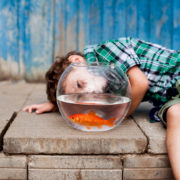Sexual health problems within a relationship are very complex to sort out. It helps to have a sort of matrix or template you can overlay on any particular issue. This may help you pinpoint the real issue of concern more accurately. The six principles of a healthy sexual relationships I offer here are meant to serve in that capacity. They are taken from Doug Braun-Harvey’s work from the Harvey Institute in San Diego, California (see resources below).
Posts
In addition to my degree in clinical social work, I have a masters degree in public health. We prevent. That’s what public health is about. In this post I want to help you see the hidden costs of poor boundaries, and prevent those costs for yourself. First you need to understand that prevention is often invisible unless you first look at the prevented costs. Here’s an example of that.
Your children are like so much wet cement according to Time Magazine, in that they are impressionable at an early age. Your words and actions make impressions that will ‘harden’ over time and guide their sense of identity. A large portion of our job as parents is to guide, shape and correct them. When shaping behaviors, it is important to guard how much you criticize vs praise those you love. The same thing applies to your partner. Is complaining your habit? So what is the magic ratio?
Money fights are a hot spot I am asked about frequently by couples. Money has a lot to do with power in relationships. Here’s an example.
What the heck is the sunk cost fallacy? We worry about things we’ve already lost. Humans have evolved to worry about scarcity. It is how we stayed alive. But now, it has evolved into the idea of always getting our money’s worth.
One thing I often hear about partners, spouses, and coworkers–indeed, even bosses, is that the person feels they “Should just know what I need” because the person with this particular narrative has been with them for umpteen days, months, or years. But have you said this to them? Ever? “Well, no, but they should just know!” In other words, you expect them to get out their crystal ball and engage in a bit of fortune telling.
I am so fascinated by why emotions have such a low value in our culture. People are simply not aware of the power their emotions exert over their behavior. They do not investigate them. They are not curious about emotion. And Brené Brown’s research has shown that people who do investigate their emotions have learned to do so in one of three ways. How I wish they were as curious as this little boy staring at his fish!
Ha! Bet you’re saying well that’s easy, since they act like one sometimes! But why you should treat your partner like a child has serious implications for building a better relationship with them. Sometimes communication patterns start that become detrimental. We forget how we came to be in a relationship with this person as we fall into our daily routines. By this, I mean we forget what drew us together in the first place. We go to work, schlep the kids around (if they are present), grocery shop, mop up the spills, do the laundry, take the dog to the vet, get the car inspected, pay the taxes, etc. The requirements of daily life can feel like such a slog at times!
Do you ever wonder why your arguments with your partner seem so circular? Like “Arrrggghhhh! We have had this discussion 10,000 times and it never turns out any different!” Would you like to learn how to open the door to peaceful resolution? It takes work to be present when you are angry or hurt, but wouldn’t you rather begin a conversation that opens communication rather than shutting it down with criticism?
If you could order up your love the way you order up your favorite Thai dish, would you specify mild, medium or spicy-set-my-tongue-on-fire hot? Mild or hot love, spicy or not, movies, news, social media, literature and pop culture imbue the idea of love with extremes. The easy example is Shakespeare’s Romeo and Juliet, where a couple of puppy love-sick kids are lead to die because of some warped parental loyalty values. Read more
PAGE RUTLEDGE, LCSW, CHt | Couples Counseling
Tel: 910-777-7243
Offices at:
5006 Randall Parkway (close to UNCW)
Wilmington, NC 28403
Free parking at office










